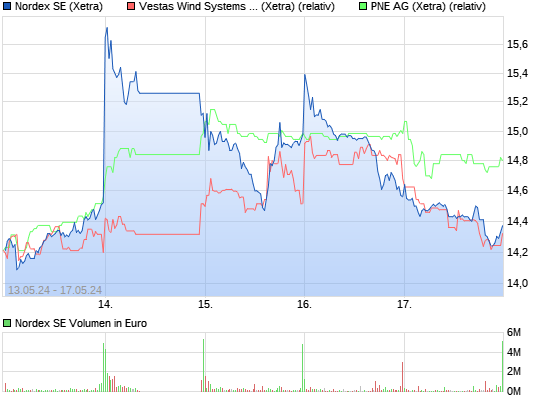|
www.businessweek.com/news/2011-04-06/...buyers-say-suzlon-vestas.html Google, Buffett May Be Wind Turbine Buyers, Say Suzlon, Vestas
April 06, 2011, 3:07 PM EDT
More From Businessweek
By Christopher Martin
April 6 (Bloomberg) -- Google Inc. and Warren Buffett’s Berkshire Hathaway Inc. have shown interest in buying wind turbines to supply power along railroad lines and at computer server farms, two of the world’s largest manufacturers said.
“Railroads could be huge potential customers of wind turbines, and companies like Google have already shown some interest,” Andris Cukurs, head of North American operations at Suzlon Energy Ltd., said in an interview. “We expect to see more large energy consumers get involved directly in wind.”
Suzlon, India’s largest turbine manufacturer, and Vestas Wind systems A/S, the world’s biggest, are seeking to attract customers outside their traditional base of independent power producers after a drop in orders from U.S. developers such as NextEra Energy Inc. and Exelon Corp.
“In North America, we’ve totally restructured our sales force and hired more engineers to work with customers that don’t have much experience with wind farms,” Martha Wyrsch, president of Vestas’s unit in the region, said in an interview. “We are seeing a lot of interest from carbon-conscious companies that we never saw before.”
The comments at the Bloomberg New Energy Finance conference in New York indicate the measures turbine makers are adopting to make up for a lull in orders.
Sales in the U.S. from all manufacturers probably will remain 30 percent below 2009 levels this year, near 2010 levels when machines with a capacity to generate 4,900 megawatts were installed, the London-based researcher estimates. State renewable-energy mandates that encourage turbine sales will require a total of about 4,800 megawatts a year through 2020.
‘Traditional’ Sales
“Traditional developers will continue to make up most of the market,” said Amy Grace, a wind energy analyst for New Energy Finance in New York. She said corporate boards seeking to burnish their environmental credentials could encourage development of up to 1,000 megawatts a year in the next decade.
Google, the world’s largest web-search engine, in October said it will help develop a $5 billion high-voltage transmission line that could connect to offshore wind turbines off the Atlantic Coast from New Jersey to Virginia. The company hasn’t ordered any wind turbines to build wind farms, said Parag Chokshi, a spokesman for the Mountain View, California-based company.
Burlington Northern Santa Fe Corp., the railroad owned by Buffett’s Berkshire Hathaway, delivers turbine parts to developers and hasn’t bought any for its own use, Steven Forsberg, a spokesman, said in an e-mail.
“Our wind resource and siting capabilities can help any customer that doesn’t know wind,” Vestas’ Wyrsch said. “It’s an important market for us going forward, but the independent power producers will continue to be our biggest customers.”
Obama’s Push
President Barack Obama in January called for 80 percent of U.S. electricity to come from “clean” energy sources by 2035, including solar and wind, as well as nuclear, cleaner coal and natural gas.
The best wind projects will cost about the same as new coal-fired plants, according to New Energy Finance estimates.
Electricity from new wind projects built today in the most windy areas cost about $65 a megawatt-hour, the researcher says. Power from a new coal-fired power plant costs about $68 a megawatt-hour, including carbon price and project finance risk.
“We’re taking advantage of the low-demand regime by improving efficiency, and seeking non-traditional markets,” Cukurs said. “We’re getting customers in new markets that hadn’t considered wind power before in Illinois, Michigan and Indiana. These areas are less transmission-constrained than, say, Texas.”
--With assistance from Noah Buhayar in New York. Editors: Reed Landberg, Will Wade
To contact the reporter on this story: Christopher Martin in Bnef Summit at cmartin11@bloomberg.net
To contact the editor responsible for this story: Reed Landberg at landberg@bloomberg.net
|


 Thread abonnieren
Thread abonnieren





